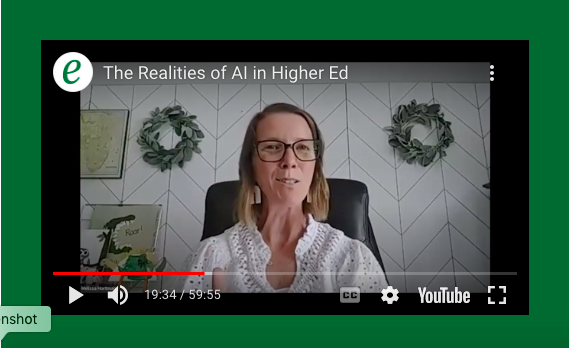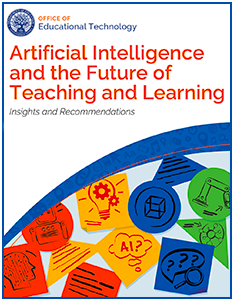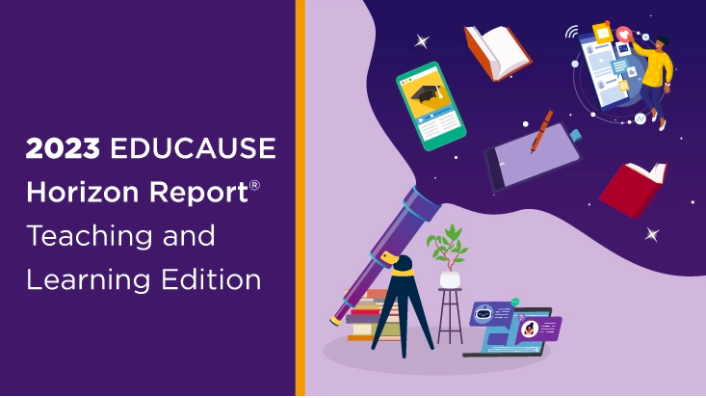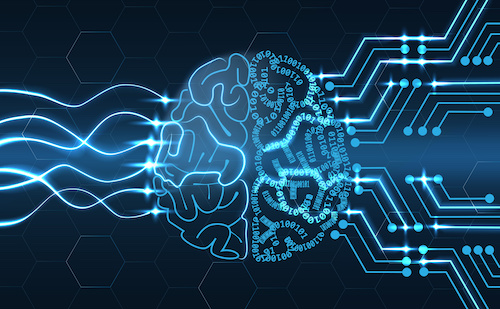Click Here for Everything You Need To Know About AI In Education
There’s no avoiding it. Artificial intelligence is here: in your classrooms, in your front office, on your phone. And while the topic can be overwhelming, it doesn’t have to be a burden. One of the best pieces of advice regarding managing AI in schools so far came during a conversation yesterday with Melissa Hortman, a senior industry executive at Microsoft, for our sister publication eCampus news, but her advice applies to all levels of education: First, learn how it works.
That being said, the amount of information out there can be overwhelming and getting worse by the day. Don’t worry, we’re here for you. The following resources should fill up your weekend reading queue quite nicely. And be sure we’ll be diving in deeper as this phenomenon progresses.
From: eCampus News

Open AI is an incredibly powerful technology that has the potential to transform the way we think about teaching, learning, and research. Used properly, faculty and students can explore new ways to approach complex problems, gain insights into data, and make predictions that were previously impossible. Sounds great right? But there are still many questions and reasonable concerns about how to make this potential practical. This conversation cleared up a lot.
From: Artificial Intelligence and the Future of Teaching and Learning

The U.S. Department of Education Office of Educational Technology’s new policy report, Artificial Intelligence and the Future of Teaching and Learning: Insights and Recommendations, addresses the clear need for sharing knowledge, engaging educators, and refining technology plans and policies for artificial intelligence (AI) use in education. The report describes AI as a rapidly-advancing set of technologies for recognizing patterns in data and automating actions, and guides educators in understanding what these emerging technologies can do to advance educational goals—while evaluating and limiting key risks.
Artificial intelligence (AI) has taken the world by storm, with new AI-powered tools such as ChatGPT opening up new opportunities in higher education for content creation, communication, and learning, while also raising new concerns about the misuses and overreach of technology. Our shared humanity has also become a key focal point within higher education, as faculty and leaders continue to wrestle with understanding and meeting the diverse needs of students and to find ways of cultivating institutional communities that support student well-being and belonging.
From: 2023 EDUCAUSE Horizon Report | Teaching and Learning Edition

For this year’s teaching and learning Horizon Report, then, our panelists’ discussions oscillated between these seemingly polar ideas: the supplanting of human activity with powerful new technological capabilities, and the need for more humanity at the center of everything we do. This report summarizes the results of those discussions and serves as one vantage point on where our future may be headed.
Also below, a laundry list of well-produced pieces from the mainstream media that will be good for your burgeoning archive of AI knowledge. Read something interesting lately. Let me know!
Wall Street Journal
MIT Technology Review
AI literacy might be ChatGPT’s biggest lesson for schools
The Atlantic
The First Year of AI College Ends in Ruin
- Big Deals: Edtech Industry News from Google, ETS, Raspberry Pi Foundation, and More - April 29, 2024
- Meet the Winners—Dr. Kellie Wilks, Chief Technology Officer, of Ector County Independent School District, TX (ECISD) - April 12, 2024
- Meet the Winners—Prince William County Public Schools (PWCS) in Manassas, Virginia wins the 2024 Community Leadership Award for Digital Equity. - April 12, 2024

